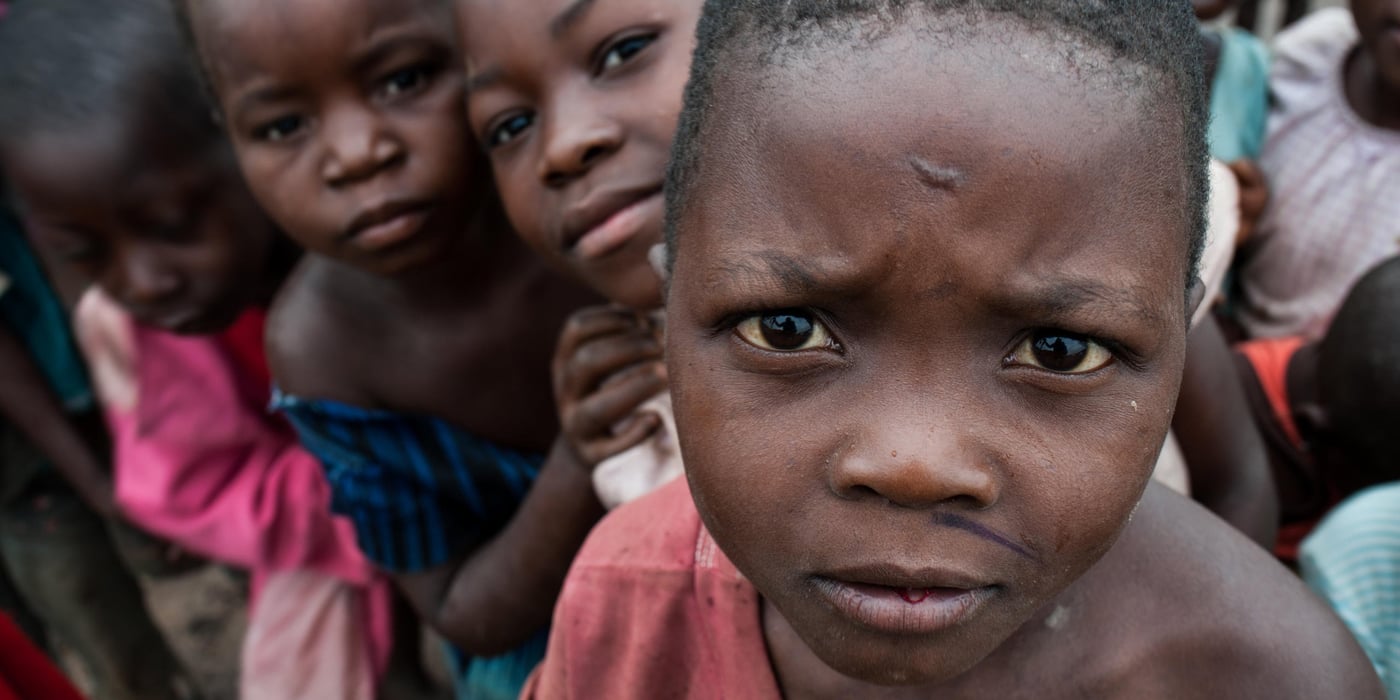
![]()
This article was first published by Thomson Reuters. You can read it here.
On the outskirts of Nyunzu village in eastern Congo stands the unassuming Church of Light. A hundred men, women and children huddle together inside this small thatched roof church, sheltering from torrential rains. The raw coughs of children are muffled by the rain spitting through the straw roof. They sleep rough on wet soil, thinly covered by empty sacks of sugar. Families live on top of each other in appalling squalor.
Four people have died since the group fled to this church for safety in September, including two children.
This scene is repeated in countless churches across Congo, as faraway conflict tears the central African nation apart.
Off the charts
This week global analysts at IDMC declared Congo the country worst affected by displacement in the world. A surge in violence that ignited in 2016 has forced 1.7 million people to flee their homes this year alone, according to the UN. That's over 5,500 people per day.
The violence has not only been widespread, it has been unimaginably brutal. Razed villages, attacked schools and children recruited as soldiers are the hallmarks of this conflict.
Communities have been left traumatised.
On top of the displacement crisis sits a deadly food crisis. Many families forced to flee have depended on farming to earn a living. Unable to plant or harvest, parents can't put food on their children's' plates. Many families are living on less than a meal a day.
Troubling times ahead
This is happening against a backdrop of a political and economic instability.
Attempts to organise elections at the end of 2017 failed. Political instability will likely worsen in the year ahead, according to analysts at ACAPS, as the December deadline set to hold new elections draws closer.
ACAPS forecasts that postponing the elections is likely to incite grievances among the population, which may turn into violent protests. They predict the widespread frustration is also likely to be used by armed groups to muster support.
The economy is already feeling the brunt of the political upset. The national currency lost over 55 per cent of its value in 2017 because of the political unrest, pushing up the price of food and other basic goods.
Red lights flashing
The United Nations sounded the alarm for Congo in October, declaring a Level 3 emergency. This title is only held by three other countries in the world – Syria, Yemen and Iraq. Membership is uniquely reserved for the worst-of-the-worst global humanitarian crises.
Despite the UN putting the world on notice about the crisis, little has changed in the two months since. Money has failed to flood in to help the 13 million people in need. Today Congo is the second lowest funded of the world's largest crises - less than half of the USD 812 million aid appeal is funded.
This means that aid agencies like ours, the Norwegian Refugee Council, are having to make impossible choices. We are forced to decide which towns and communities to provide aid to, and which must survive without. And because of the increasing number of people who need support, what little food, medicine and clean water is available must be shared among more communities.
Donor fatigue, geopolitical disinterest and competing crises have pushed Congo far down the list of priorities for the international community.
Avoiding a catastrophe
Back in the Church of Light widow Vumi Mukenia gave birth to a little girl yesterday. Until she went into labour, Vumi spent her days farming other people's land, earning about 750 Congolese francs (50 US cents) a day to feed her six children. She sits on the floor cradling her newborn, still sore from the birth. How will they survive now, she asks, as she can't leave to look for work. She hasn't eaten all day.
Two concrete things must happen to avoid the looming mega-crisis set for 2018. First, the international community must prioritise funding for Congo, and aid agencies must scale up what they are doing on the ground. Second, the government must focus on maintaining political and economic stability.
Countless lives depend on it.
Ulrika Blom is the Country Director of the Norwegian Refugee Council in the Democratic Republic of Congo. She has worked in DRC for five years, and in the humanitarian field since 2006.

